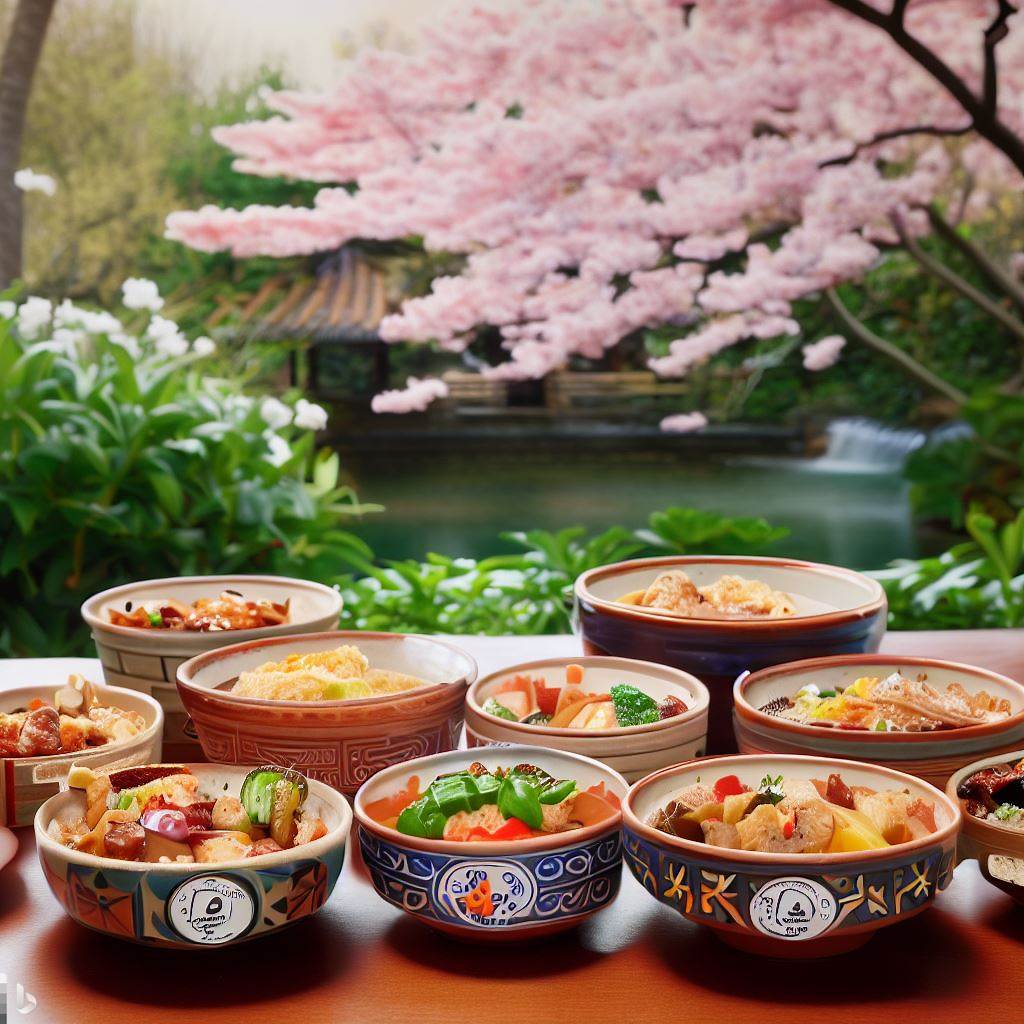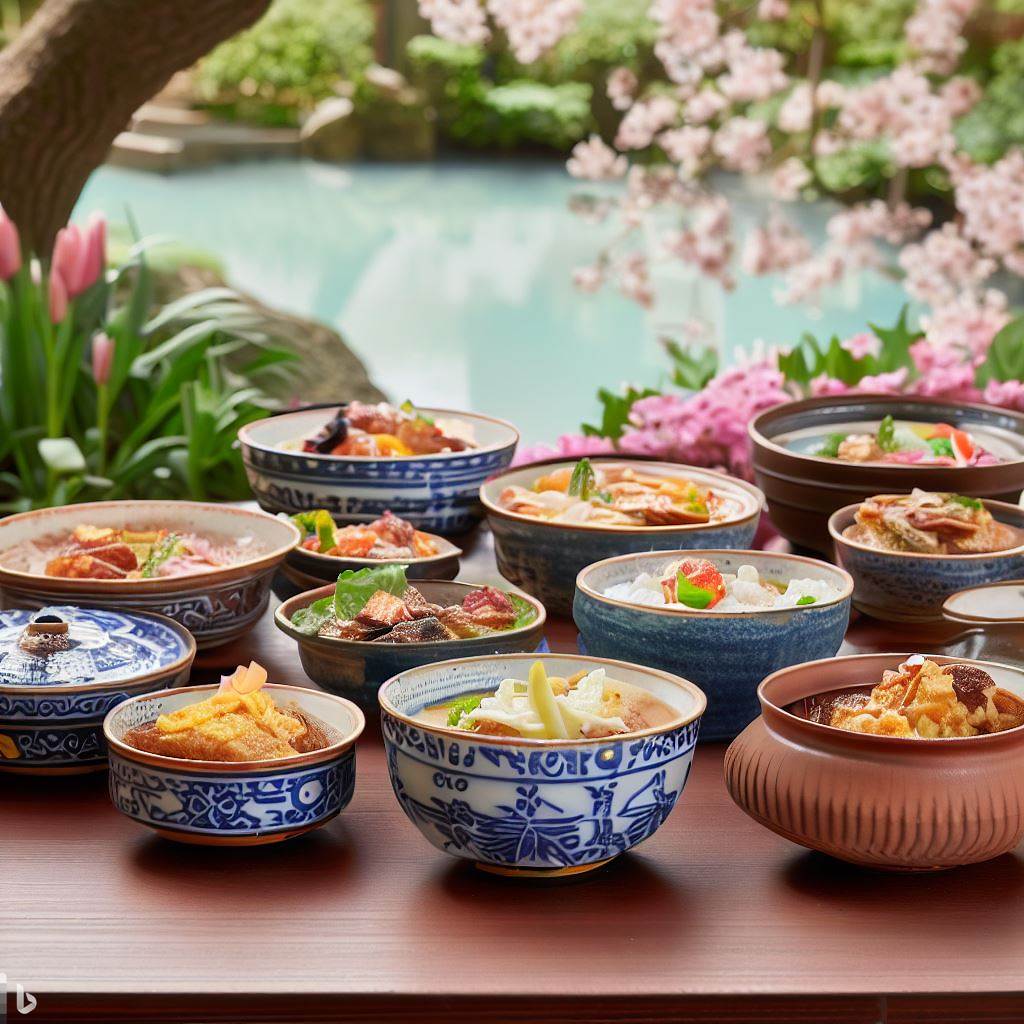If you are travelling to Japan and you are eating only kosher then this post is for you and we asked the experts at https://keshertours.com/ for tips and here are the main take aways:
1. Are there kosher restaurants in Tokyo and other major cities?
Answer: Yes, but they are limited. Tokyo has a few kosher restaurants, mainly affiliated with the Chabad of Tokyo. Other cities may not have dedicated kosher establishments, but it’s always wise to check current listings before your trip.

2. Do these restaurants have certification from recognized rabbinical authorities?
Answer: Most kosher restaurants in Japan, especially those associated with Chabad or other Jewish organizations, have certifications from recognized rabbinical authorities. However, travelers should always inquire and check the certification at each establishment.
3. Is there a variety of kosher food options available (meat, dairy, vegetarian)?
Answer: The few kosher restaurants in Tokyo tend to offer a range of options, including meat, dairy, and vegetarian dishes. The variety may not be as vast as in countries with larger Jewish communities, but they make a concerted effort to cater to different dietary needs. However, in locations without dedicated kosher restaurants, options might be limited.
4. Are there any kosher grocery stores or sections in regular stores?
Answer: There aren’t dedicated kosher grocery stores per se. However, some international stores or high-end supermarkets in larger cities might carry imported goods that are kosher-certified. Chabad in Tokyo also provides some kosher grocery items for sale.
5. Can I find kosher-labeled products in regular supermarkets?
Answer: Some products in regular Japanese supermarkets may be incidentally kosher (without formal certification), but it’s essential to be familiar with kosher symbols and ingredients. Imported products might have recognizable hechshers (kosher certification symbols), but they can be rare. Many Japanese products, such as certain sauces, might contain non-kosher ingredients like fish derivatives, making them non-kosher.
6. Are there common Japanese snacks that are incidentally kosher or have kosher certifications?
Answer: While some Japanese snacks might seem kosher due to their ingredient list, they might not be certified, and there’s always a risk of cross-contamination in factories. Rice-based snacks or those made from seaweed might be okay, but it’s essential to check individual product ingredients and be aware that formulations can change.
7. Can I rent accommodations with kitchen facilities to prepare my own meals?
Answer: Absolutely. Many tourists opt for accommodations like Airbnb or serviced apartments that come with kitchen facilities. This allows them to buy fresh ingredients and prepare kosher meals themselves, ensuring they adhere to their dietary requirements.
8. What should I be aware of when buying fish or vegetables for kosher cooking?
Answer: When buying fish, ensure it has fins and scales to be considered kosher. Many popular Japanese fish varieties are kosher, but some traditional dishes might use non-kosher seafood ingredients. As for vegetables, they should be thoroughly checked and washed to ensure they’re free from insects.
In conclusion, while Japan might not be as kosher-friendly as some other destinations, with a bit of planning and awareness, it’s entirely possible to maintain a kosher diet during your trip.
What else you should know about Kosher Japan?

1. Are there any kosher grocery stores or sections in regular stores?
Answer: Japan does not have dedicated kosher grocery stores like one might find in countries with larger Jewish populations. However, in Tokyo and possibly other large cities, you may find international or upscale supermarkets that carry imported goods. Some of these imported items might be kosher-certified. Additionally, the Chabad of Tokyo offers a small selection of kosher products for sale, which is helpful for travelers or residents in need of specific kosher items.
2. Can I find kosher-labeled products in regular supermarkets?
Answer: Some products in Japanese supermarkets, especially imported ones, may come with recognizable kosher symbols or hechshers. However, these are not widespread. A traveler might incidentally find products that adhere to kosher guidelines but without the formal certification. It’s always essential to be knowledgeable about kosher symbols and to read ingredient lists meticulously. Keep in mind that many Japanese food products, especially sauces and seasonings, could contain non-kosher ingredients like fish derivatives or be processed in facilities that handle non-kosher items.
3. Are there common Japanese snacks that are incidentally kosher or have kosher certifications?
Answer: There might be Japanese snacks that are incidentally kosher due to their ingredient list, but without the formal certification, there’s always a risk, primarily due to potential cross-contamination in factories or shared equipment. For instance, rice-based snacks, products made from seaweed, or certain candies might align with kosher guidelines. However, caution is advised, and it’s best to check each product’s ingredients and processing methods.
4. What should I be aware of when buying products for kosher cooking from regular supermarkets?
Answer:
- Ingredients: Always check the ingredients. Even if a product seems kosher, it could contain additives or flavorings derived from non-kosher sources.
- Cross-contamination: Be aware of products that, although kosher in ingredients, might be processed on equipment shared with non-kosher items.
- Fish and Seafood: Many Japanese dishes are seafood-based. When purchasing fish, ensure they have both fins and scales to be considered kosher.
- Vegetables: Some vegetables, especially leafy greens, should be thoroughly checked and washed to ensure they’re free from bugs and insects.
- Dairy: Some dairy or dairy-alternative products might contain non-kosher additives or emulsifiers.
In conclusion, while finding kosher products in Japan might require a bit of diligence and research, it’s not impossible. Understanding and recognizing kosher symbols, being aware of ingredient lists, and possibly connecting with local Jewish organizations can help in navigating the kosher landscape in Japan.